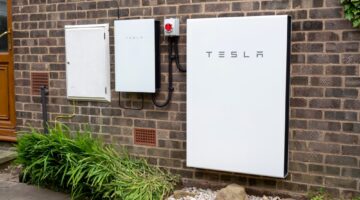
Merry Christmas everyone! The office will be closed from 4pm 23rd December, when the mince pie bingeing will commence. We have limited opening hours on the 28th, 29th and 30th and then we’ll be back on the 4th January ready to answer your calls and get some blogs ready for the coming year.
2016 at The GreenAge
The end of the year has us feeling all retrospective! It’s been a great 2016 for The GreenAge: loads of meetings, hundreds of phone calls answered, blogs written, new staff, numerous office reshuffles… We are pleased to say that we have helped thousands of people this year with free energy saving advice.
Our most recent project – and something we are very excited about – was launching our local installers map. This allows us to match up our readers with installers of new boilers, insulation and other energy saving measures in their area, all of whom are qualified and vetted by us. It’s free to use and super quick, so we hope to help loads of people through this in the coming months.
Our online shop, the Ecostore, has helped lots of people save energy this year. In particular, we’ve seen a massive increase in people installing infrared heating. Infrared panels are an efficient, space-saving heating method and we think it’s only a matter of time before they reach the mass market.
Something else we’ve had loads of enquiries about this year is external wall insulation. If you regularly visit our website, you’ll know that EWI is something we’re pretty keen on, and we’re always happy to give out information about the measure.
UK Government energy policies in 2016
Theresa May’s appointment as Prime Minister saw the dismantling of DECC (The Department of Energy & Climate Change), replaced with DBEIS (The Department for Business, Energy & Industrial Strategy. We’re yet to see anything much come out of this, good or bad, although we can’t help but think removing any mention of climate change might not bode well.
This year, there were big setbacks in green energy investment from the Government. 2016 saw the Green Deal packed up and incentives for home renewables have been cut. Grants, Renewable Heat Incentive and Feed in Tariff rates have all been slashed. Numbers of people installing solar PV in particular have dropped, but lots of people still believe in the positives of green technologies and have kept up their support, installing solar PV, new heating systems and insulation in their homes.
The Government has honoured its promise to close down all coal power plants by 2025. This will have a massive impact on air quality and help the country reach pollution reduction targets set out in the Paris Agreement. There are only 9 active coal power stations left in the UK and, in May, solar energy generation eclipsed that of coal for the first time ever in our country.
So the move away from one dirty form of energy generation is great, but what it will be replaced with is not clear at this point. Disappointingly, it looks like the Government have chosen nuclear over renewables. Hinkley Point C – the Conservative Government’s big hope – has only very recently been given the final go ahead, after years of delay.
Work will start on the UK’s first tidal power plant in 2017. Tidal power – a potentially high yielding and relatively uncontroversial technology – could be a great thing for the UK and Swansea’s is expected to pave the way for more plants in the future.
While these power plants will eventually generate a lot of energy, it won’t be for some time. Realistically, dismantling all coal plants – although it’s a step in the right direction – without planning for replacement power stations, is pretty reckless. Before long, it looks like we will be facing some sort of energy gap. If Norway needs to reserve more energy for itself and turns us off, we could conceivably be facing blackouts in the not-too-distant future.
What’s next for the UK?
As far as predictions for next year go, here are a few of our ideas:
- Fracking in the UK could begin as early as April 2017, after the Government overruled considerable opposition from the public and Lancashire council. This is alarming because of the lack of conclusive research into the environmental and health impacts of shale gas extraction.
- The pound has been falling since Brexit. This, combined with our increasing reliance on importing gas from Norway, means that energy prices are expected to rise.
- Electric cars look set to reach a bigger market, thanks to increased choice of models, improved battery technology and generous Government grants.
Here’s to a great Christmas and a successful 2017! See you next year, and, as ever, let us know what you’d like help with!












No Comments yet! Be the first one.